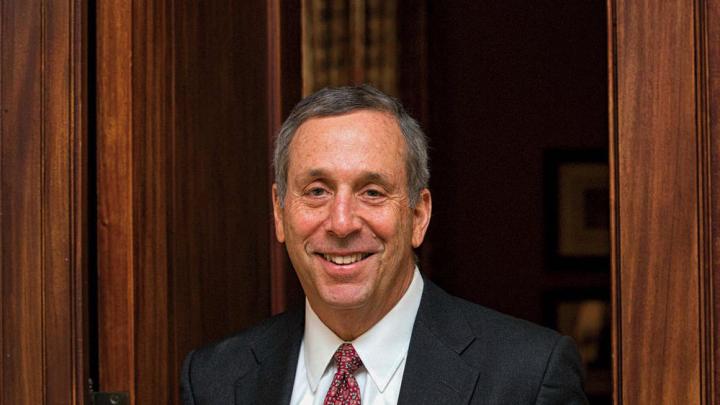This is the first of my letters written from home. Right now, Adele and I are suffering through what we hope will be the worst of our COVID-19 symptoms—something that feels a lot like the flu, not fun but also not life threatening. We feel fortunate. Many others are suffering far more. My home office overlooks our front yard, which, in the absence of regular comings and goings by people, has been commandeered by about a dozen wild turkeys. I find myself envying both their lack of social distance and their ignorance of the pandemic.
Throughout my career in higher education, I have had to deal with my share of crises, but none of them compares to the scope and scale of COVID-19. In early March, it became increasingly clear that the spread of the novel coronavirus at Harvard could have dire consequences. I sought the guidance of faculty experts in infectious disease, epidemiology, virology, and public health as my team considered a variety of options. Our students were on the verge of dispersing for Spring Recess, potentially traveling to places where they were likely to become infected and carry the virus back to campus. If we could send most of them home instead, we could both thin out our densely populated dorms to permit social distancing and protect those members of our community who might be more at risk than otherwise-healthy college students.
I knew at the time that we would be accused of acting prematurely, but I also knew that the cost of being wrong was asymmetrical. If, with the benefit of hindsight, we acted too soon, we would inconvenience many people and waste a lot of money. If, however, we failed to act and we were wrong, people might die. Making the decision was not difficult. Implementing it was.
On March 10, I announced three major changes intended to limit exposure to the disease among members of our community. Students were asked not to return to campus after Spring Recess, giving them less than a week to pack and to travel home or elsewhere if at all possible; faculty were directed to begin planning for a complete transition to virtual instruction; everyone on campus was urged to limit gatherings to no more than 25 people—a laudable imperative that today seems almost laughable.
The anticipated response was swift: Why now? It was a question time answered. By the end of the month, the United States surpassed all nations in the total number of cases. Schools closed; non-essential businesses shuttered; people stayed home or, in some cases, obeyed orders to shelter in place. Every aspect of day-to-day life changed profoundly.
Meanwhile, Harvard students, faculty, and staff adapted quickly. On the first day of remote learning, 57,500 students participated via Zoom in 5,800 classes or meetings—only six of which had technical issues. Feats of bandwidth were surpassed only by the willingness of faculty across Harvard to adapt to new ways of presenting material and engaging with students. As they ventured into the digital wilderness, professors shared with one another techniques and approaches that will undoubtedly shape their pedagogy going forward, an unexpected upside to working in exile.
I am confident that we made the right decisions, but one decision still stings. It was obvious that postponing commencement was the only choice given the rapid spread of COVID-19, but I was deeply saddened to share the news with members of the Harvard Class of 2020. We will convene online in May to confer degrees, and we will gather in the future for a proper celebration. Our graduates will have a chance to stand shoulder to shoulder with friends and classmates, to see their families and loved ones brimming with pride, and to revel in the applause and cheers of a community that will embrace them always. Being awarded a degree is the heart of the ceremony but not its soul.
To the outside observer, it may look like COVID-19 scattered the Harvard community across the globe, but, in the ways that matter most, it has drawn all of us together, focusing our attention at a time unlike any other in University history. We will come through on the other side stronger and wiser for it. In the meantime, take care and stay healthy.








